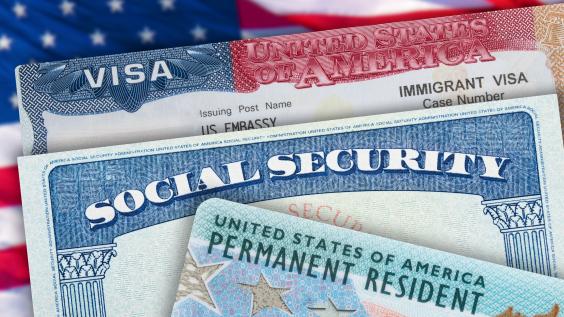
EB-1 visa
If you are not a citizen of the United States, you may qualify for an employment-based, first-preference visa under one of these categories: extraordinary ability, outstanding professor or researcher, or certain multinational executive or manager. Each category has specific requirements that you need to fulfill:
Eligibility Criteria
Extraordinary Ability
You must show that you have extraordinary ability in the sciences, arts, education, business, or athletics through sustained national or international acclaim. You must provide at least 3 of the 10 criteria* below, or prove that you have a one-time achievement (such as a Pulitzer, Oscar, Olympic Medal) and that you will continue to work in your field of expertise. You do not need an offer of employment or a labor certification.
Outstanding professors and researchers
You must prove that you have international recognition for your outstanding achievements in a specific academic field. You must have at least 3 years of experience in teaching or research in that field. You must be coming to the United States to pursue tenure or tenure track teaching or a similar research position at a university, institution of higher education, or private employer. You must provide at least 2 of the 6 criteria listed below** and an offer of employment from the U.S. employer. The private employer must have documented accomplishments and employ at least 3 full-time researchers. You do not need a labor certification.
Certain Multinational Managers or Executives
You must have worked outside the United States for at least 1 year in the past 3 years before the petition or your most recent lawful nonimmigrant admission if you are already working for the U.S. employer. The U.S. employer must have been in business for at least 1 year, have a qualifying relationship to the entity you worked for outside the U.S., and plan to employ you in a managerial or executive capacity.
Criteria for Demonstrating Extraordinary Ability
In order to demonstrate you have sustained national or international acclaim and that your achievements have been recognized in your field of expertise, you must either include evidence of a one-time achievement (major internationally-recognized award) or 3 of the 10 listed criteria below (or comparable evidence if any of the criteria do not readily apply):
· Evidence of receipt of lesser nationally or internationally recognized prizes or awards for excellence
· Evidence of your membership in associations in the field which demand outstanding achievement of their members
· Evidence of published material about you in professional or major trade publications or other major media
· Evidence that you have been asked to judge the work of others, either individually or on a panel
· Evidence of your original scientific, scholarly, artistic, athletic, or business-related contributions of major significance to the field
· Evidence of your authorship of scholarly articles in professional or major trade publications or other major media
· Evidence that your work has been displayed at artistic exhibitions or showcases
· Evidence of your performance of a leading or critical role in distinguished organizations
· Evidence that you command a high salary or other significantly high remuneration in relation to others in the field
· Evidence of your commercial successes in the performing arts
Examples of Documentary Evidence That a Person is an Outstanding Professor or Researcher
In order to demonstrate you are an outstanding professor or researcher, you must include evidence of 2 of the 6 listed criteria below (or comparable evidence if any of the criteria do not readily apply):
· Evidence of receipt of major prizes or awards for outstanding achievement
· Evidence of membership in associations that require their members to demonstrate outstanding achievement
· Evidence of published material in professional publications written by others about the noncitizen’s work in the academic field
· Evidence of participation, either on a panel or individually, as a judge of the work of others in the same or allied academic field
· Evidence of original scientific or scholarly research contributions in the field
· Evidence of authorship of scholarly books or articles (in scholarly journals with international circulation) in the field
